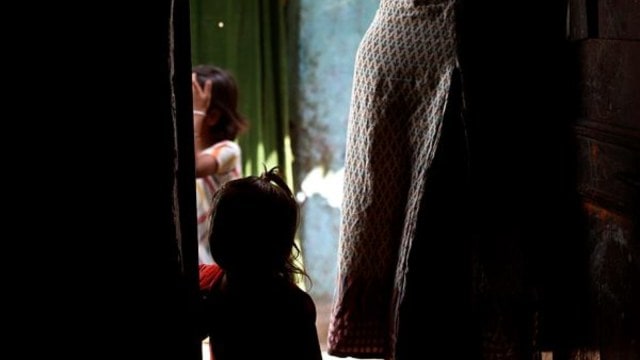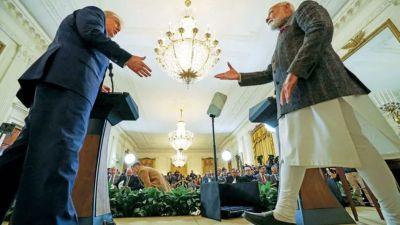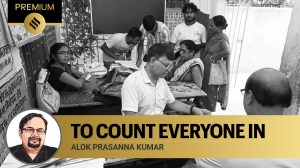Click here to join Express Pune WhatsApp channel and get a curated list of our stories
India could bring maternal deaths down to 70 per 1 lakh live births: UNFPA report
At this rate, India is likely to achieve the global 2030 SDG target of 70 maternal deaths per 100,000 live births, before time, according to a UNFPA report
 A UNFPA spokesperson told The Indian Express that between 2000 and 2020, the maternal mortality ratio (MMR, number of maternal deaths per 100,000 live births) dropped by 70% (from 327 to 97). Express file photo
A UNFPA spokesperson told The Indian Express that between 2000 and 2020, the maternal mortality ratio (MMR, number of maternal deaths per 100,000 live births) dropped by 70% (from 327 to 97). Express file photoNine in 10 pregnant women in India are availing institutional deliveries, while eight in 10 women have the ability to make decisions about their health. A new 2024 State of World Population report released recently by UNFPA — the UN sexual and reproductive health agency — has said that India has made remarkable strides in reducing maternal mortality, with its share of global maternal deaths dropping to just 8 per cent in 2020, a significant decrease from the 26 per cent it recorded in 1990.
A UNFPA spokesperson told The Indian Express that between 2000 and 2020, the maternal mortality ratio (MMR, number of maternal deaths per 100,000 live births) dropped by 70% (from 327 to 97). At this rate, India is likely to achieve the global 2030 SDG target of 70 maternal deaths per 100,000 live births, before time.
Dr Natalia Kanem, UNFPA Executive Director, at a virtual press conference to mark the release of the 2024 State of World Population report “Interwoven Lives, Threads of Hope: Ending inequalities in sexual and reproductive health and rights” said that the unintended pregnancy rate has been reduced by nearly one fifth, maternal death rate lowered by one third, and laws against domestic violence have been secured in more than 160 countries.
“Despite this progress, inequalities within our societies and health systems are widening, and we have not adequately prioritised reaching those who are furthest behind. Our work is incomplete but not impossible with sustained investment and global solidarity,” Dr Kanem told the press.
As per a UNFPA spokesperson, “India’s story is a remarkable one in decreasing maternal mortality, serving as an example globally. The country has made a mark in accelerating access to affordable, quality maternal health services, and gender-forward policies.”
UNFPA is committed to support the Government’s maternal health programmes, especially in the four focus states of Bihar, Madhya Pradesh, Odisha and Rajasthan where MMR ranks amongst the seven highest States in India, the spokesperson said.
“As UNFPA India completes 50 years of its partnership with the Government of India, the organization is committed to the mission of ensuring that every pregnancy is wanted and every childbirth is safe,” he added.
The downside
The global report however said that sweeping global gains in sexual and reproductive health rights over the last thirty years are marred by an ugly truth – millions of women and girls have not benefited because of who they are or where they were born. The report highlights the role racism, sexism and other forms of discrimination continue to play in blocking broad gains in sexual and reproductive health for women and girls.
This year marks the 30th anniversary of the International Conference on Population and Development in Cairo – a landmark moment in which 179 governments committed to placing sexual and reproductive health and rights at the core of sustainable development.
But progress is in danger. Millions of women and girls remain far behind, and progress is slowing or stalled on key measures: 800 women die every day giving birth, unchanged since 2016; a quarter of women cannot say no to sex with their partner and nearly one in 10 women cannot make their own decisions about contraception. In 40 per cent of countries with data, women’s bodily autonomy is diminishing.
Click here to join Express Pune WhatsApp channel and get a curated list of our stories








